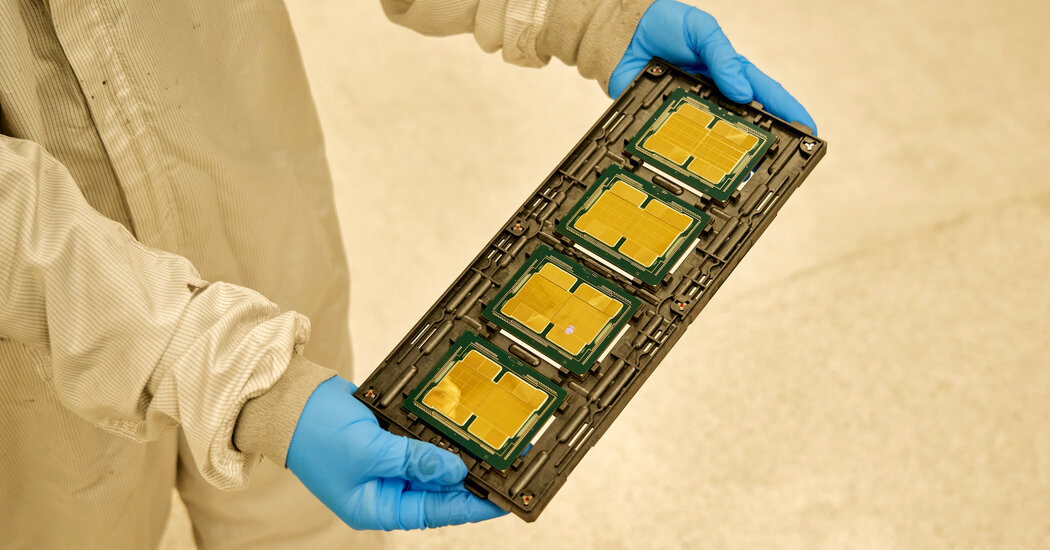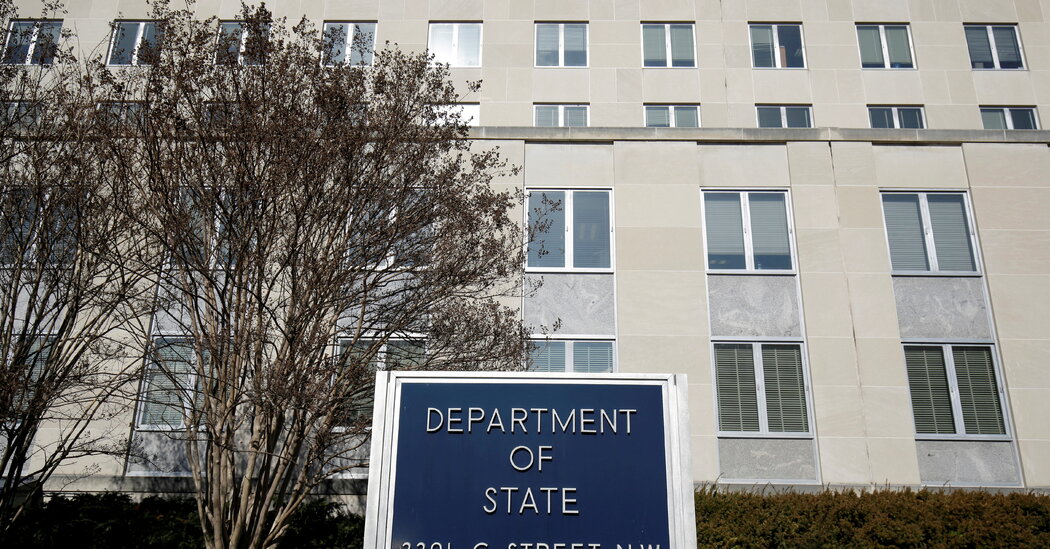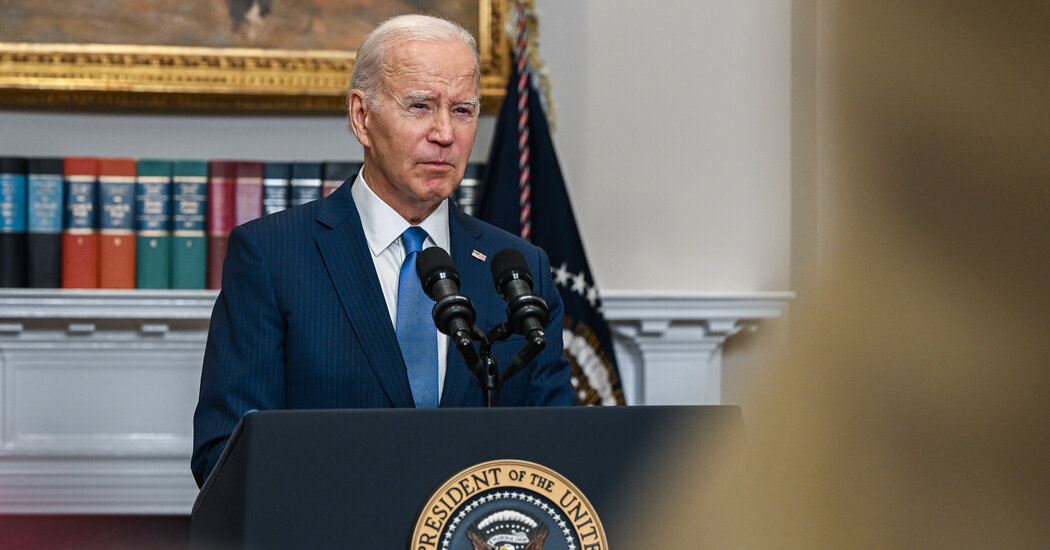The United States and its allies vowed this week to do more to counter Chinese theft of technology, warning at an unusual gathering of intelligence leaders that Beijing’s espionage is increasingly trained not on the hulking federal buildings of Washington but the shiny office complexes of Silicon Valley. The intelligence chiefs sought to engage private industry in combating what one official called an “unprecedented threat” on Tuesday as they discussed how to better protect new technologies and help Western countries keep their edge over China. The choice of meeting venue…
Tag: Artificial Intelligence
U.S. Tightens China’s Access to A.I. Chips
The Biden administration on Tuesday announced additional limits on sales of advanced semiconductors by American firms, shoring up restrictions issued last October to limit China’s progress on supercomputing and artificial intelligence. The rules appear likely to halt most shipments of advanced semiconductors from the United States to Chinese data centers, which use them to produce models capable of artificial intelligence. More U.S. companies seeking to sell China advanced chips, or the machinery used to make them, will be required to notify the government of their plans, or obtain a special…
China Uses ‘Deceptive’ Methods to Sow Disinformation, U.S. Says
The State Department accused China on Thursday of using “deceptive and coercive methods” to shape the global information environment, by acquiring stakes in foreign newspapers and television networks, using major social media platforms to promote its views and exerting pressure on international organizations and media outlets to silence critics of Beijing. The accusations, detailed in a report by the department’s Global Engagement Center, reflect worry in Washington that China’s information operations pose a growing security challenge to the United States and to democratic principles around the world by promoting “digital…
In Risky Hunt for Secrets, U.S. and China Expand Global Spy Operations
As China’s spy balloon drifted across the continental United States in February, American intelligence agencies learned that President Xi Jinping of China had become enraged with senior Chinese military generals. The spy agencies had been trying to understand what Mr. Xi knew and what actions he would take as the balloon, originally aimed at U.S. military bases in Guam and Hawaii, was blown off course. Mr. Xi was not opposed to risky spying operations against the United States, but American intelligence agencies concluded that the People’s Liberation Army had kept…
China Sows Disinformation About Hawaii Fires Using New Techniques
When wildfires swept across Maui last month with destructive fury, China’s increasingly resourceful information warriors pounced. The disaster was not natural, they said in a flurry of false posts that spread across the internet, but was the result of a secret “weather weapon” being tested by the United States. To bolster the plausibility, the posts carried photographs that appeared to have been generated by artificial intelligence programs, making them among the first to use these new tools to bolster the aura of authenticity of a disinformation campaign. For China —…
Listen: Talk to Whales, Back-to-School Tips, and Some Advice for China
Hey listeners, Who says all news has to be bad news? Mississippi has significantly improved its kids’ reading tests, A.I. might help you talk to whales and a medical-detective storyteller takes on long Covid. Open these great listens in our app and save to your queue for hands-free listening. opinion America Has a Reading Problem. Mississippi Has a Solution. As back to school begins, our Opinion columnist wants America to learn from the Magnolia State.By Nicholas Kristof Listen to the story. If you haven’t already, download the New York Times…
The Sunday Read: ‘The Silicon Blockade’
Listen and follow The DailyApple Podcasts | Spotify | Stitcher Last October, the United States Bureau of Industry and Security issued a document that, underneath its 139 pages of dense bureaucratic jargon and minute technical detail, amounted to a declaration of economic war on China. The magnitude of the act was made all the more remarkable by the relative obscurity of its source. In recent years, semiconductor chips have become central to the bureau’s work. Despite the immense intricacy of their design, semiconductors are, in a sense, quite simple: tiny…
Biden to Restrict Investments in China, Citing National Security Threats
The Biden administration plans on Wednesday to issue new restrictions on American investments in certain advanced industries in China, according to people familiar with the deliberations, a move that supporters have described as necessary to protect national security but that will undoubtedly rankle Beijing. The measure would be one of the first significant steps the United States has taken in its economic clash with China to clamp down on financial flows. It could set the stage for more restrictions on investments between the two countries in the years to come.…
The Chip Titan Whose Life’s Work Is at the Center of a Tech Cold War
In a wood-paneled office overlooking Taipei and the jungle-covered mountains that surround the Taiwanese capital, Morris Chang recently pulled out an old book stamped with technicolor patterns. It was titled “Introduction to VLSI Systems,” a graduate-level textbook describing the intricacies of computer chip design. Mr. Chang, 92, held it up with reverence. “I want to show you the date of this book, 1980,” he said. The timing was important, he added, as it was “the earliest piece” in a puzzle that came together for him — altering not only his…
What Happens When You Ask a Chinese Chatbot About Taiwan?
“How does the United States affect the situation in Taiwan?” Ernie ducked the question about China’s “zero Covid” restrictions, offering a lengthy description of the policy instead. When asked to recount the events of June 4, 1989, the chatbot rebooted itself. A message popped up on the reloaded interface: How about we try a different topic? The Chinese chatbot said Russia’s president, Vladimir V. Putin, did not invade Ukraine, but “conducted a military conflict.” The strange phrasing was broadly in line with China’s official stance, which has refused to condemn…








